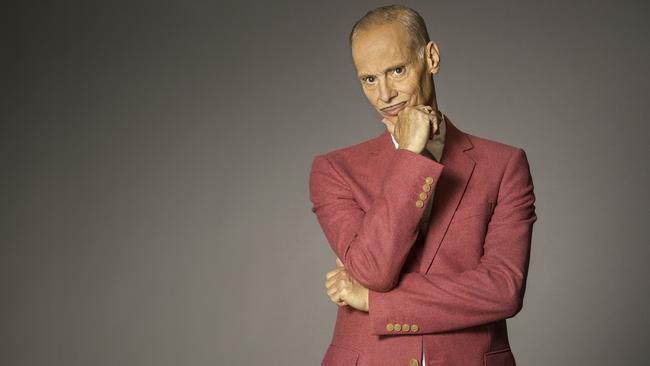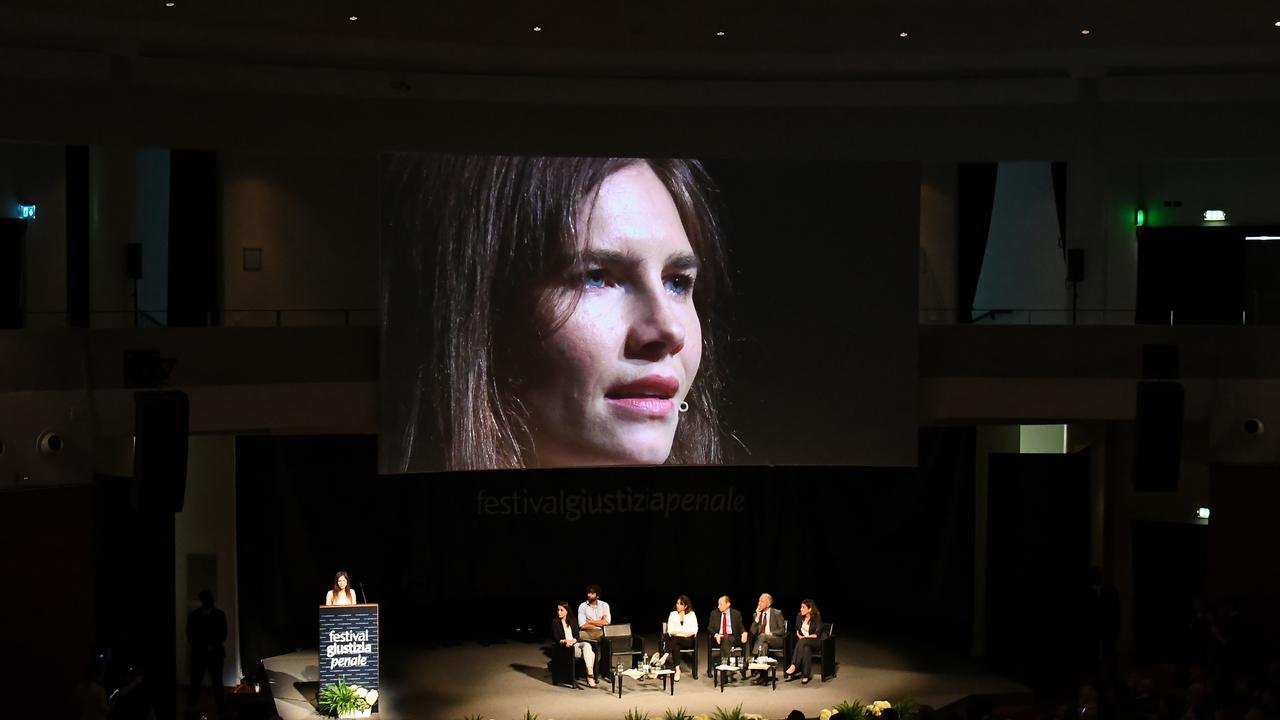John Waters: tales of a road scholar
JOHN Waters was 66 when he undertook to hitchhike from his home in Baltimore to his apartment in San Francisco and write a book about the experience.

EVERY hitchhiker in cult director John Waters’s film oeuvre is picked up by a first-class degenerate. The outlaw couple who scour Baltimore’s backstreets in Pink Flamingos (1972) are two of his most memorable sickos, looking for female hitchhikers to kidnap and impregnate in order to sell the babies at their black-market adoption agency.
It has been a decade since Waters’s last film was released — the nymphomaniac comedy A Dirty Shame — while his children’s Christmas movie Fruitcake has never found a backer, reflecting the changing nature of the industry. These days, writing has become one of Waters’s main modes of storytelling: his previous book, Role Models (2010), was a lively essay collection about his heroes, from pop singer Johnny Matthis to lesbian stripper Lady Zorro.
So when the self-proclaimed Pope of Trash decided in 2010 to hitchhike from his home in Baltimore to his apartment in San Francisco and write a book about the experience — what the queer filmmaker calls his “hobo-homo journey” — many might have presumed that he as passenger would be the deviant.
Waters was 66 when he undertook the trip and in the pages of Carsick we discover a more mellow man. It’s hard to imagine this incarnation making drag queen Divine eat dog faeces on-screen so she could retain the mantle of “filthiest person alive”. Still, Waters’s fans are greeted by a familiar voice on the page. He’s the same devilishly funny raconteur we heard in his recent speaking tour, with an eccentric wit that the uninitiated may initially struggle to grasp.
Carsick centres on Waters the celebrity forsaking his comfortable life in search of weirder pastures: “Can I really give up the rigid scheduling I’m so used to in real life? Me? The ultimate control freak who plans, weeks ahead, the day I can irresponsibly eat candy?”
It’s also an attempt to get back in touch with the hitchhiking renegade of his youth, yet he’s never without some trappings of fame. Waters sets out in a fashionably distressed Rei Kawakubo sports jacket, a wallet full of crisp $100 bills, and two assistants who, while maintaining the “filth empire” in his absence, are only a phone call away. They reassure him, find him the best hitching spots and, if needs be, will organise a rescue limo. Luckily, Waters has a healthy ability to poke fun at his own ego. The signs he holds up to passing cars proclaim Midlife Crisis, I’m Not Psycho and I’m Writing a Book About Hitchhiking. He remains unrecognised for much of the trip, with many drivers convinced he’s a delusional vagrant.
Before he embarks, Waters’s raucous imagination finds an outlet as he envisages the best and worst rides possible. These chapters are cinematically vivid, encountering the kinds of lovable maniacs only Waters could dream up. Each leg is matched to a rollicking hitchhiking song that readers are encouraged to source online, in an attempt to replicate the eclectic soundtracks of his films.
Many of Waters’s best imagined rides would be a sane person’s idea of the worst. Reflecting both aesthete and pervert, his drivers range from a cinephile with a penchant for “extreme pictures” (who happens to be a “criminal-capitalist” prepared to fund Fruitcake) to a sexy demolition derby enthusiast, Whiplash, whose lust for destruction would make him at home in JG Ballard’s Crash. Waters even joins a circus that makes Tod Browning’s Freaks look mild: “the closest I’ll ever get to Artaud’s Theatre of Cruelty … only nice”.
Not every imagined ride is so pleasant, with psychotic fans who speak only in dialogue from his films (“I wrote this? I wonder in horror. Then I run”), infamous true-crime figures, and a queer extremist determined to eliminate “bisexual sympathisers” like Waters. The bad journey ends in his gruesome murder — an act of altruism compared to the preceding ordeal.
After such a kaleidoscope of invented horrors, the lifts he actually receives are bound to be tame by comparison and, at times, they’re tediously so. Amid long stretches enduring the elements, it’s the kindness of strangers that prevails. “Any driver who picks up a hitchhiker wants to talk,” says Waters, but what they disclose is uncharacteristically vanilla.
He meets heterosexual men who adore their wives, and Republicans and Christians with whom he finds kinship despite variant views. The wildest of the lot are benevolent ex-junkies. When Waters has assistants ready if trouble should arise, the stakes can’t get that high.
The strength of Waters the filmmaker is his ability to find warmth and humour in the grotesquery behind Baltimore’s picket fences. In Carsick, one longs for him to look beyond himself and think about why a Regular Joe or Jane would undertake such a journey. The kindness he encounters is remarkable, especially in an era when most people prefer to keep strangers on the other side of their computer screen.
Rebecca Harkins-Cross is a writer and critic.
Carsick: John Waters Hitchhikes Across America
By John Waters
Constable & Robinson, 336pp, $24.99


